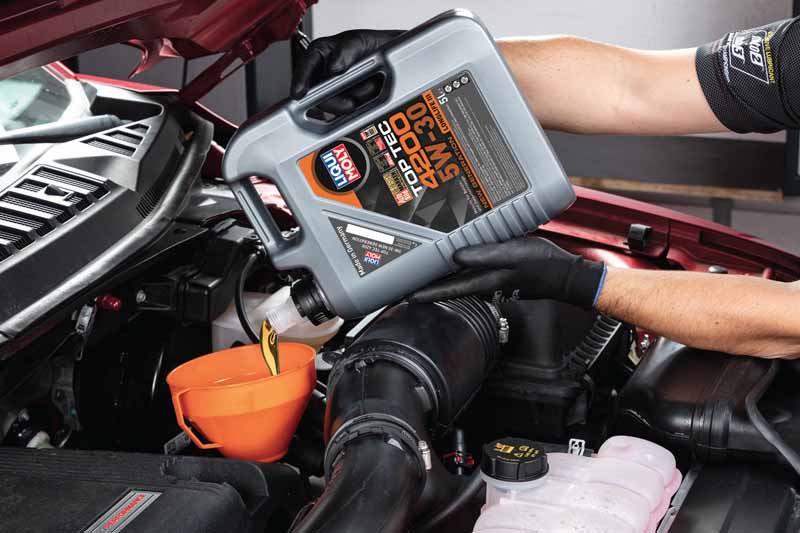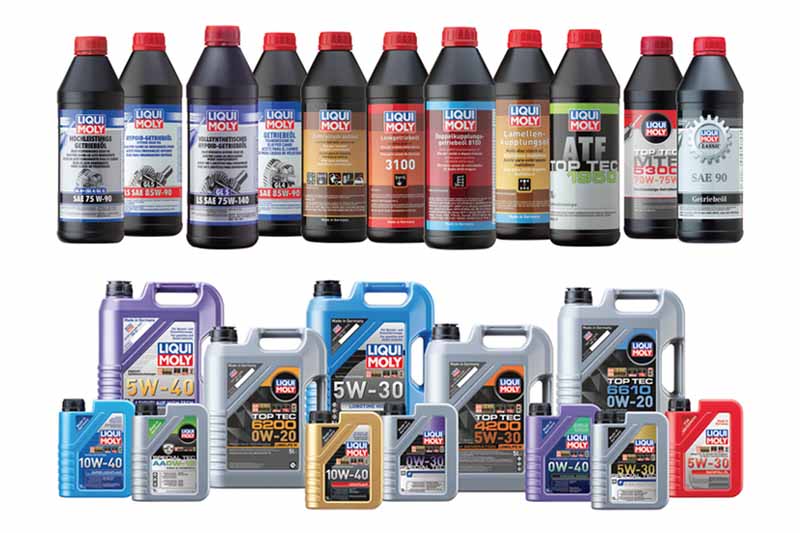LIQUI MOLY on changing and choosing the correct oil

Why is it important to use the correct oil? Can money be saved on engine oil and why does it need to be changed? LIQUI MOLY Application Engineer and Global Technical Support, Steffen Niemietz, provides responses:
Proper oil lubrication is one of the most important things relating to engine protection. A protective lubricating film is necessary for minimum wear and to prevent engine damage. While wear protection is extremely important, using a high-quality oil with an OE approval or specification can also help to further reduce internal friction while maximising performance and efficiency. An oil will need to protect well in all operating conditions and during extreme engine loads. It will also need to provide max flow during cold start while at the same time prevent lubrication film break down at extremely high temperatures.
Why is it necessary to change the motor oil?
Over time oil loses its ability to provide the required protection, thus regular oil changes are necessary. Oil change intervals vary depending on factors, such as engine design, engine wear, infrequent usage, ambient temperature, fuel quality and type.
With time and distance driven, motor oils are affected by such factors as fuel dilution, heat cycles, condensation, mechanical shear forces etc.
Why is it important to use the correct oil?
Every engine design is different and needs to use a specific oil at all times. A motor oil needs to provide maximised engine and emission system protection during sometimes very long oil change intervals. Full protection can only be guaranteed when an OE approved oil is used. If using an oil with specifications outside the required parameters, excess wear and reduced efficiency can be expected. Using an oil with an incorrect viscosity may affect a variable valve timing system’s ability to control timing and/or cause an increase in fuel usage, due to lower engine efficiency. An OEM approved oil guarantees full protection and engine efficiency, while also making sure emission system components, like catalytic converters and particle filters, can operate without loss of efficiency.
Can motor oil help a motorist save money?
Using a high-quality motor oil with the correct OE specifications can save on repairs and prevent premature breakdown.
When a technician performs an oil change on a modern vehicle, it’s extremely important to use an oil that fulfils all OEM specifications for maximised protection. By doing so, their customer will guarantee best fuel mileage and engine longevity, while also being able to follow extended oil change schedules.
A high quality LIQUI MOLY motor oil frequently exceeds the manufacturer specifications and extends the engine’s service life. Many LIQUI MOLY motor oils are officially approved by manufacturers.
Additives in the oil
All motor and gear oils use individual additive packages as part of the formulation. Additive packages are matched to the oil specification needed. Some more advanced additive packages can be used to make an oil that meets more than one specification. For an oil to get an official manufacturer approval, a high-quality additive package has to be used.

What is the difference between a motor oil and a gear oil?
Fundamentally, gear oils carry out the same task as motor oils – but the main difference with gear oils is that they are designed specifically to protect, lubricate and cool gearing systems that are mainly found in transmissions, differentials and transfer boxes. These are usually exposed to much higher pressure and shearing forces than an engine oil. Another difference is gear oil is not diluted by fuel input. In principle, gear oils, therefore, require other ingredients – other additive packages – in order to be able to fulfil the tasks required of them.
Tasks and added values of motor oil:
Lubrication: Lubrication of mechanical engine components is an oil’s most important function. An oil strong lubrication film prevents metal-to-metal contact while reducing friction between internal components.
Cooling: A motor oil contributes to cooling by removing heat from areas, such as cylinder walls and piston rings. This is necessary for overall protection of sensitive areas and to keep the engine from overheating.
Cleaning: Eliminating combustion byproducts, metal debris, sludge and deposits from engine internals is another motor oil function. A motor oil needs to help clean engine internals and also transport residue to the oil filter for removal.
Sealing: Motor oils support piston rings sealing for reduced compression loss, thereby increasing efficiency and preventing excess oil consumption. A thin oil film on rubber seals reduce wear, overheating and prevent premature leaks.
Corrosion protection: A protective oil film on all internal surfaces prevent corrosion and/or erosion of metals. This protective film prevents oxygen, moisture and acidic by-products from affecting metals.
Pressurise: Ensuring accurate oil pressure for hydraulically operated systems is also one of the tasks of modern motor oils.
Environmental protection: The use of effective exhaust aftertreatment systems, such as particle filters, is only possible if modern motor oils with the correct oil specification are used.








